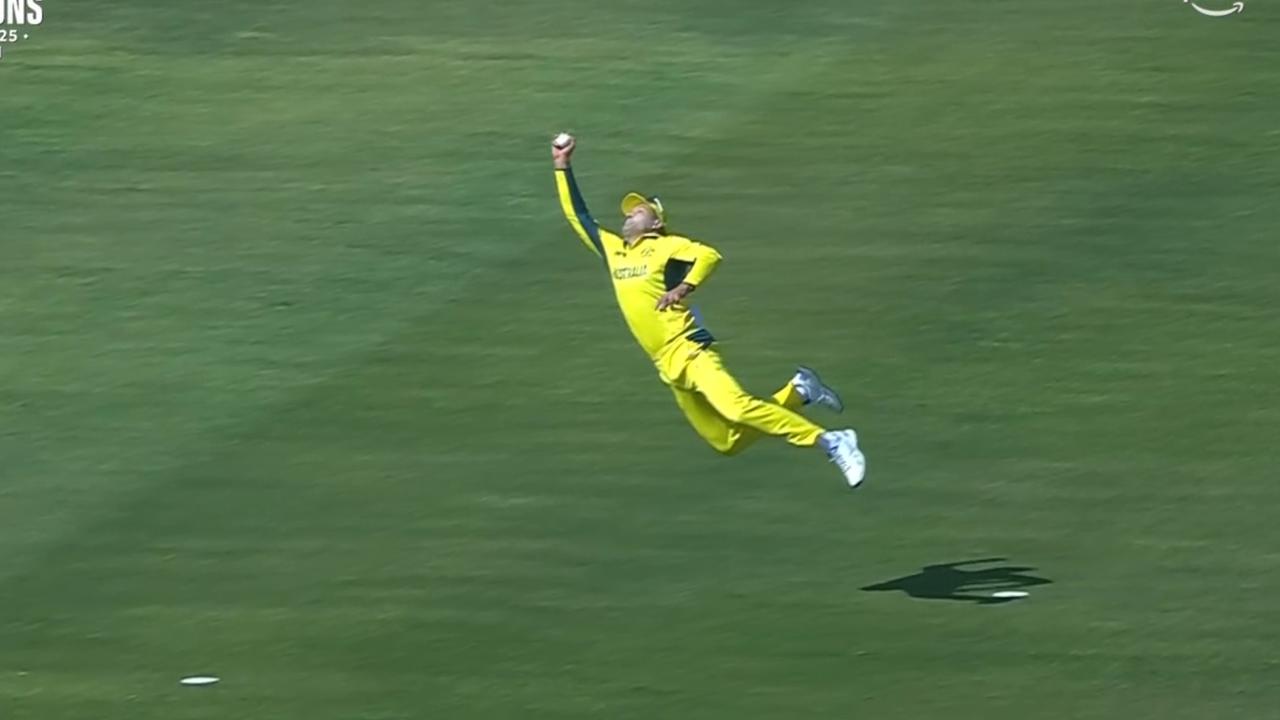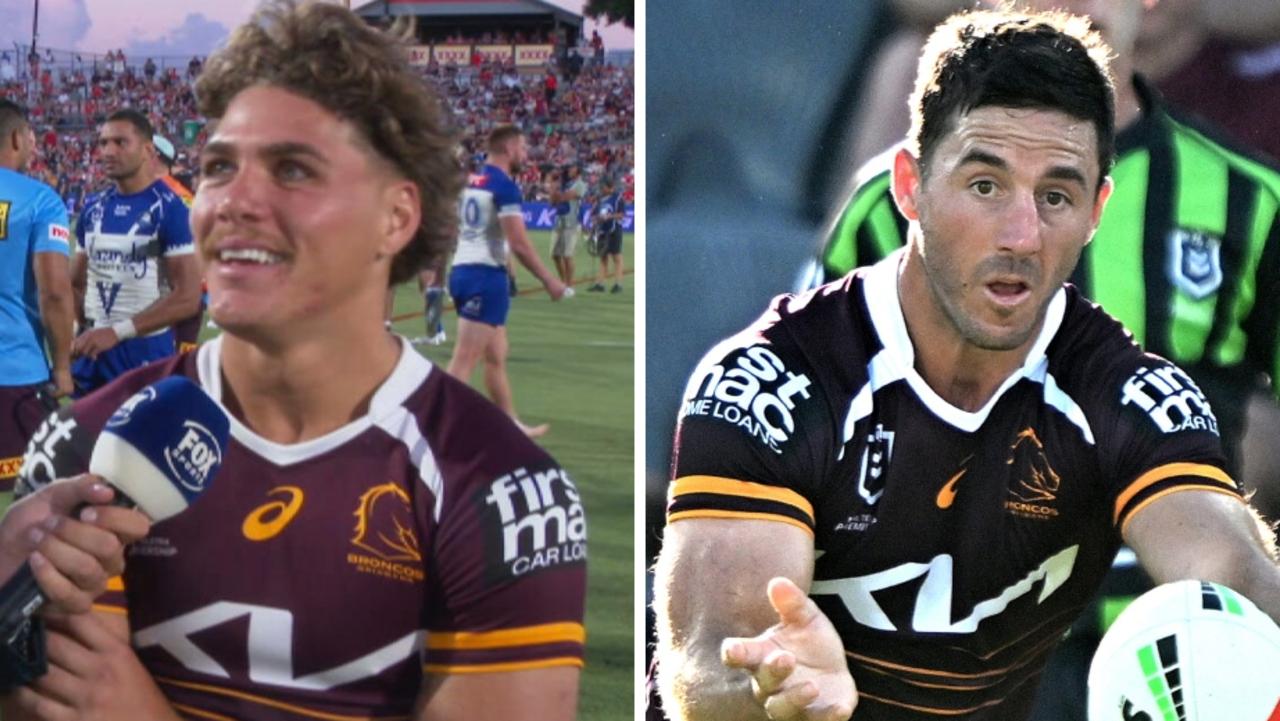No senior coach in an expanding AFLW league exposes Gillon McLachlan’s vision for diversity in Australian football
GIVING women a pathway in Australian football was the basis for starting the AFLW league. But even with expansion to 10 teams, there is less opportunity for women to coach, writes Michelangelo Rucci.
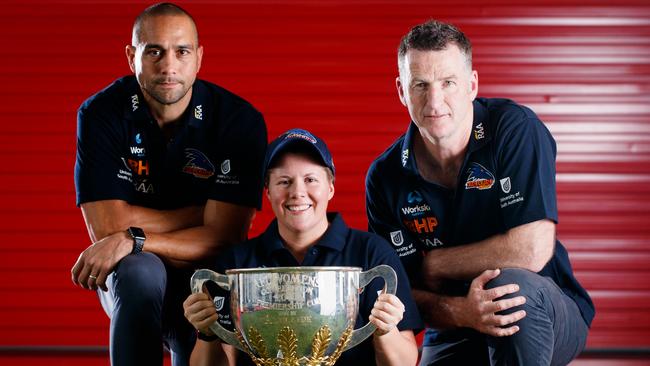
Sport
Don't miss out on the headlines from Sport. Followed categories will be added to My News.
FINALLY, women with passion for Australian football have a league of their own ... or do they?
AFL boss Gillon McLachlan’s bold push for the national women’s football league to start in 2017 — rather than 2020 — was always to highlight (or expose) the need for greater development of would-be AFLW players.
McLachlan’s perceptive vision that creating heroines — none more influential than Erin Phillips — for teenage girls was to be more powerful than bombarding the grassroots with clinics for three years. The pathway to an elite football career is now clear for thousands of girls who no longer have to pack away their boots at 15.
But only as players.
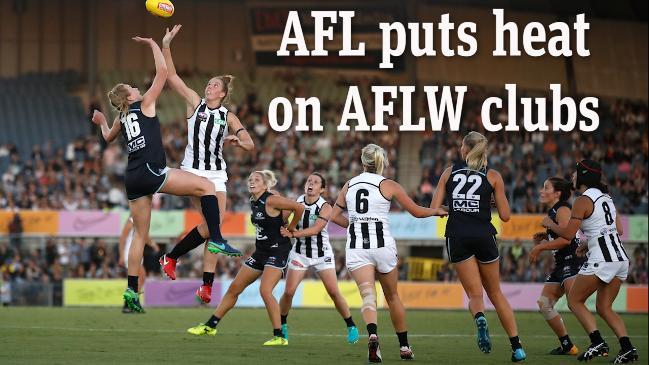
The AFLW began in 2017 with eight teams — and only two, Adelaide and Fremantle, appointing female senior coaches, Bec Goddard and Michelle Cowan respectively.
The AFL will expand to 10 teams in the summer and is unlikely to have a woman in the hot seat. Expansion clubs North Melbourne (Scott Gowans) and Geelong (Paul Hood) have chosen men to direct their campaigns.
Samantha Lane, in her book Roar which looks at the soul of women’s football and the inaugural AFLW season, published a quote that is as perceptive as McLachlan’s decision to shove the national women’s game onto the football landscape early.
Quoting a senior employee at an AFL club, Lane wrote: “I’m seeing senior AFLW coaches just getting their mates in.
“Women will never get there unless we’re prepared to invest in them. There are (in 2017-8) two women as senior coaches in the AFLW, and if that’s left unchecked, we’ll see history repeat.
“And that aside, clubs aren’t actually being smart going man heavy in the AFLW. It’s a different ball game coaching women — the way we interact, the way we think.
“Some male coaches simply try to pick up the men’s game and put the template on the women’s game. I’m convinced that won’t work.”
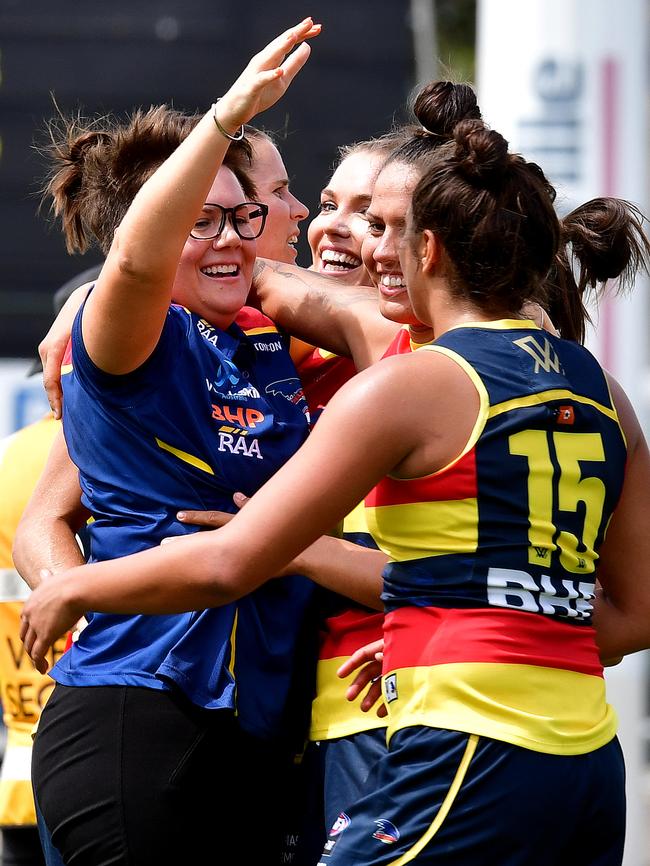
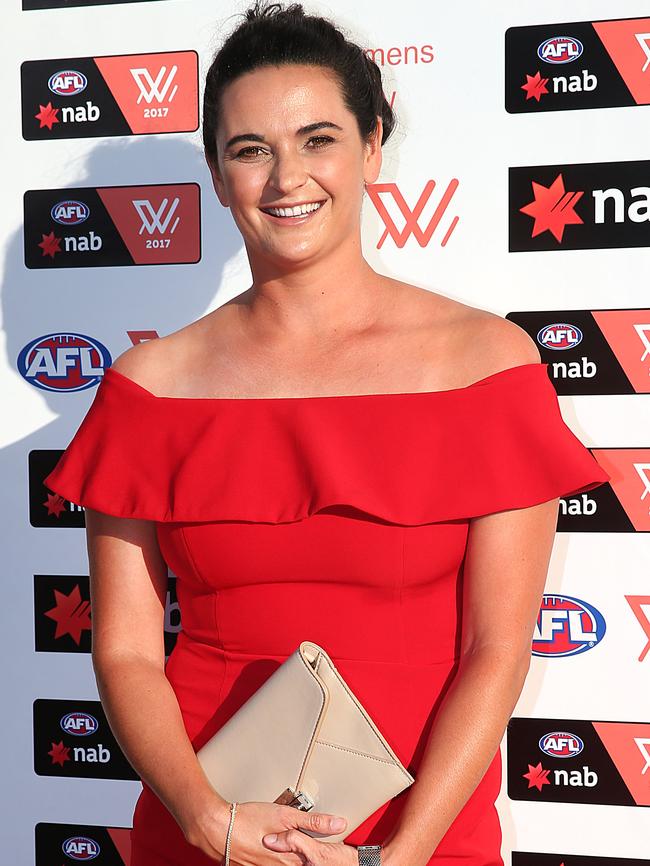
Lane quoted another AFLW devotee saying: “I fear that the AFLW is starting to become a man’s world in terms of leadership. I fear we’ve created a women’s competition for women to play in and men to manage.”
In watching Goddard and Cowan fail to stay in the AFLW, Lane has put the highlighter pen on these quotes and added: “When the only two women head coaches walk away from AFLW jobs, it’s time to look seriously at this — and much more.”
Cowan’s exit might be explained by results — two disappointing seasons with seventh rankings. Coaches are inevitably vulnerable to the writing on the scoreboard. But should she be lost to the game after having such a significant role as a pioneer in women’s football — and can play a critical part in broadening the sport’s base?
Goddard’s resignation at Adelaide — to return to Canberra where she works with the Australian Federal Police and continues to follow her passion for the game as an assistant coach with the Canberra Demons in the NEAFL — is more concerning. Her loss to the AFLW — and to a market such as Adelaide that needs a high-profile coach building on a talent base often tagged as shallow — reinforces the question of how far are the AFL and its clubs prepared to go to develop women beyond players to become coaches, talent scouts and administrators?
Adelaide’s inability — or reluctance — to absorb Goddard on a full-time basis at West Lakes while now preparing to appoint her successor in a full-time role highlights how far short the AFL system is of McLachlan’s vision for diversity.
The inaugural AFLW premiership coach, Goddard’s exit from the top shelf of women’s football puts the lens on Lane’s quote that “women will never get there unless we’re prepared to invest in them.”
Goddard tried to make herself more relevant in the game — well beyond the eight-week AFLW premiership season — when she sought to learn from AFL coaches Chris Scott and Ross Lyon during the International Rules Series between Australia and Ireland at Adelaide Oval in November.
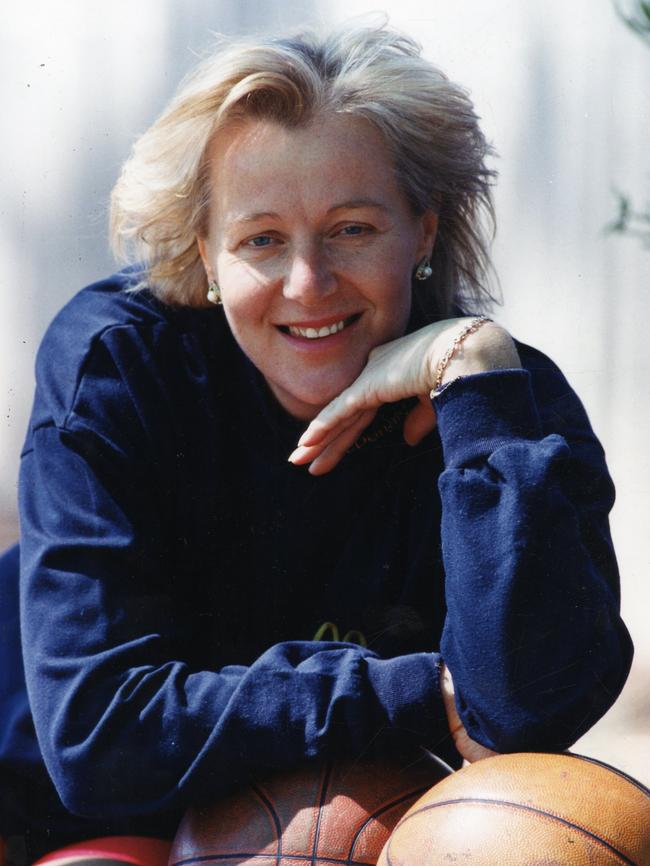
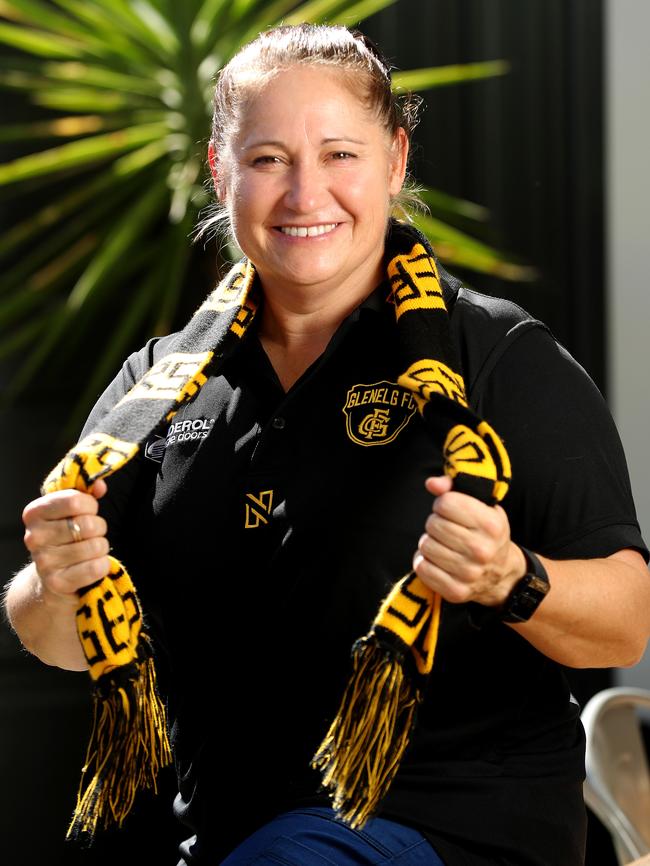
The AFL was quick to present Goddard as a triumph for its diversity and determination to break the barriers for women. It was no more than a public relations exercise. The boys network is not ready for women in their game.
Goddard is one of Australia’s most astute sporting coaches who builds confidence in players. But her path to a meaningful role beyond the AFLW remained blocked by the insular theme of “How many AFL games did you play?” Not 200, as expected by those appointing AFL assistant coaches.
There are exceptions — very rare exceptions — as noted at St Kilda which in 2014 appointed Peta Searle to a full-time role, two decades after Pat Mickan broke the wall at Adelaide. In the SANFL, Glenelg has created history this season by handing its reserves team to Narelle Smith.
McLachlan’s eagerness to establish the AFLW three years before many thought the sport was ready for such an adventure has tested the grassroots where there is enormous pressure to find volunteers to manage teams, money to develop appropriate changerooms and coaches to help players follow their dreams.
Parents inevitably follow their children to be volunteers.
Governments are counting the votes that come with delivering grants to football clubs taking on women’s football.
And the AFL now has to deal with completing the pathway for women beyond just playing in the AFLW. If McLachlan and his strategists are not concerned by the elite game losing Goddard, Lane’s quote — “a women’s competition for women to play in and men to manage” — will resonate.
QUOTE OF THE WEEK
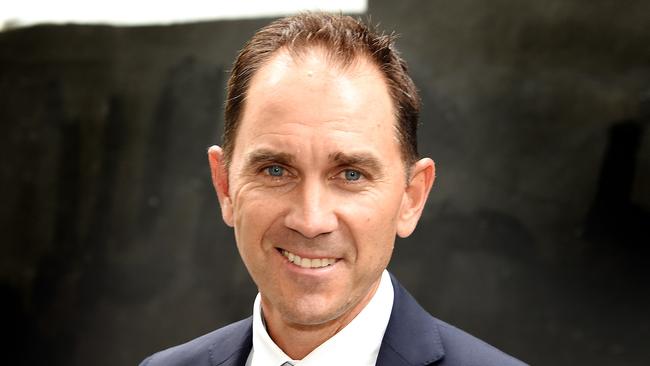
WE’VE always played hard … some of the best banter (is to get) the opposition thinking about other things. That’s mental toughness — being 100 per cent focused on the next ball. If you’re worrying about what you just said to me, there is a distraction.
NEW Australian cricket coach JUSTIN LANGER making it clear there will be no zippers on the Test players’ lips.
REALITY BITES
BUSY BEC
BEC GODDARD is short of a role in elite Australian football, but her expertise is certainly being appreciated outside the AFL tent. The inaugural AFLW premiership coach — who has left the Adelaide Football Club after failing to find a way to renew her contract for a third season — was in Brisbane on Thursday to offer her insights on coaching to the Australian swimming coaches and a teachers’ conference.
Goddard is in Adelaide at the weekend to speak at an Order of Australia conference before returning to her work at the Australian Federal Police in Canberra on Monday.
It is still bewildering that such invaluable and experience can be appreciated outside the AFL system, but cannot continue to be the foundation for critical development and growth within the game.
POWER OF SPORT
PORT Adelaide’s move to China is described by the AFL club as “sports diplomacy” (even though the cynics, such as Hawthorn president Jeff Kennett, get confused with traditional themes such as building a new base for recruiting).
So what is this sports diplomacy?
This example might just be the moment that reinforces what the Power means by “sports diplomacy”.
For the past year, the Australian government has tried three times to get its trade ministry — led by Gold Coast MP Steven Ciobo with Mark Coulton in the assistant portfolio — into China for high-level meetings with no invite from Beijing.
But — not by coincidence — the Australian government will finally get in front of its Chinese counterparts this month ... as the Australian trade mission goes to Shanghai to be part of the show at the second Port Adelaide-Gold Coast AFL game.
The power of sport in changing politics.
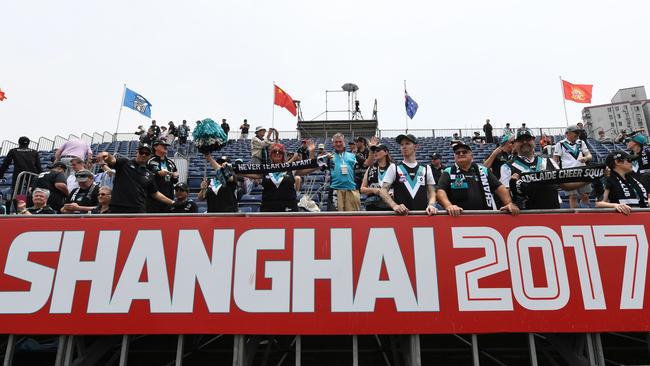
SHANGHAI SCRIPT
SO what will be the repetitive question in the build-up to this month’s Port Adelaide-Gold Coast game in Shanghai?
AFL executive Dave Stevenson has spent much of the past year in working with the Power to ensure so many of the pre-game controversies from last season’s historic game at the Jiangwan Stadium off the agenda this time.
TURF? “Players were raving about the surface when we asked for feedback last year,” said Stevenson. “We’re comfortable with the turf ... and the players will be impressed with purpose-built changerooms this year.”
CROWD for a game that drew 10,118 last year? “We’ve increased ticket sales by 15 per cent,” said Stevenson, “and there are only a handful of tickets left. The most pleasing point on ticket sales is we’ve grown interest locally (almost doubling the ticket sales among the Chinese).”
GOLD COAST with 2017 coach Rodney Eade so outspoken in the lead-up to the match? “The Suns have sent more staff to Shanghai recently to be better prepared this time,” Stevenson said.
TELEVISION that had Chinese deals signed only days before last year’s game? “We’re looking at a bigger audience than the grand final — and have three free-to-air television networks in China taking the game,’ Stevenson said. “Consider the NFL (American football) is not on free-to-air television in China.”
BEER? “No,” said Stevenson. “Just like at soccer games in China, there is no beer in the stands. But there will be alcohol in the hospitality tents.
“It will be a better fan experience this time — better access, better food and drink, better entertainment and better access to the stadium gates and seats.
“Port Adelaide has done so much to make this game works — and the AFL grows its presence internationally. We’re certainly better second time at it.”
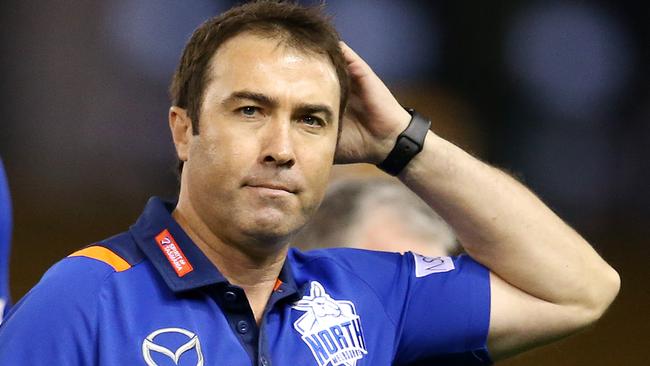
THOUGHT OF THE WEEK
PREDICTABLE — although a little earlier than usual — the “look of the game” is back on the AFL talkfest agenda. Now there would not be an AFL coach ready to point the finger at himself as the culprit, so the chorus of current league mentors calling for the debate to end is not surprising.
But North Melbourne coach BRAD SCOTT might have a point with his response: “There will always be the doomsayers who bemoan how good football used to be. Well, get out your VHS tape and have a look at how good it used to be ... because it is nothing like it is now.”
Originally published as No senior coach in an expanding AFLW league exposes Gillon McLachlan’s vision for diversity in Australian football

